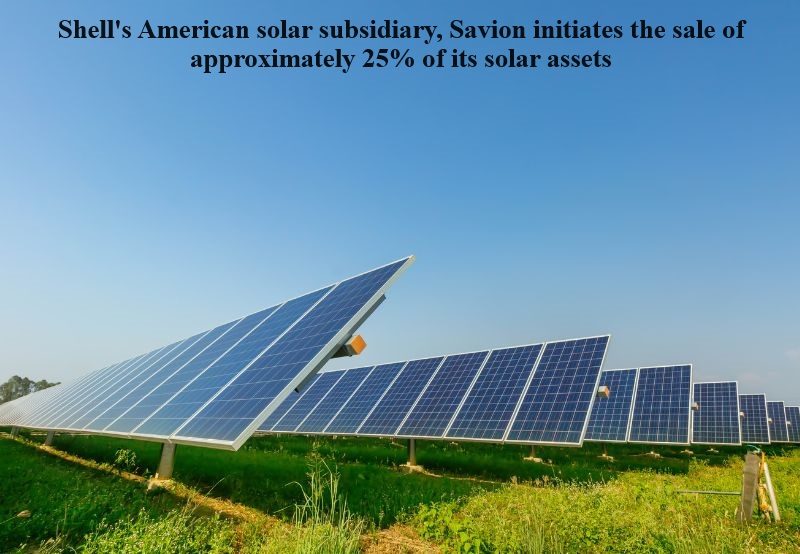
Shell’s American solar subsidiary, Savion, has initiated the sale of around 25 percent of its solar assets, as per industry sources and a marketing document acquired by Reuters.
This move signifies Shell’s ongoing divestment from renewable energy projects under CEO Wael Sawan’s realignment strategy.
The sale process is being overseen by investment bank Jefferies, which is offering up to 10.6 gigawatts (GW) of solar generation and storage assets primarily situated across various regions in the United States. While the exact value of the assets remains undisclosed, their assessment typically relies on regional power prices.
Savion, possessing a portfolio of 39.1 GW of solar and storage projects, has become a significant player in the renewable energy sector since its acquisition by Shell in December 2021.
However, the current divestment initiative reflects Shell’s strategic shift under CEO Wael Sawan, who prioritizes concentrating on the most profitable ventures. Sawan’s approach emphasizes obtaining low-carbon power for trading and sale instead of direct ownership of generation assets, which often yield lower returns.
This realignment aims to fulfill Shell’s broader objectives of enhancing profitability, maintaining stability in oil output, and increasing natural gas production.
Although renewables valuations have experienced a decline, they remain crucial to the global energy transition, garnering increased attention as interest rates indicate a decrease.
KPMG, as reported by Reuters, highlighted the significance of renewable assets in propelling the transition towards sustainable energy solutions in a recent report.
The sale of Savion’s US portfolio, named “Dasher,” enables the subsidiary to redirect its focus towards advancing Shell’s integrated power markets strategy.
Shell’s recent divestments extend beyond its renewable energy ventures, encompassing segments like power retail businesses in Britain and Germany, floating offshore wind projects, and hydrogen operations.
Moreover, the company is pursuing exits from certain refining operations and its onshore oil business in Nigeria.
Concurrently, Shell has initiated company-wide cost-saving measures, including staff reductions within its low-carbon solutions division.

Post Your Comments